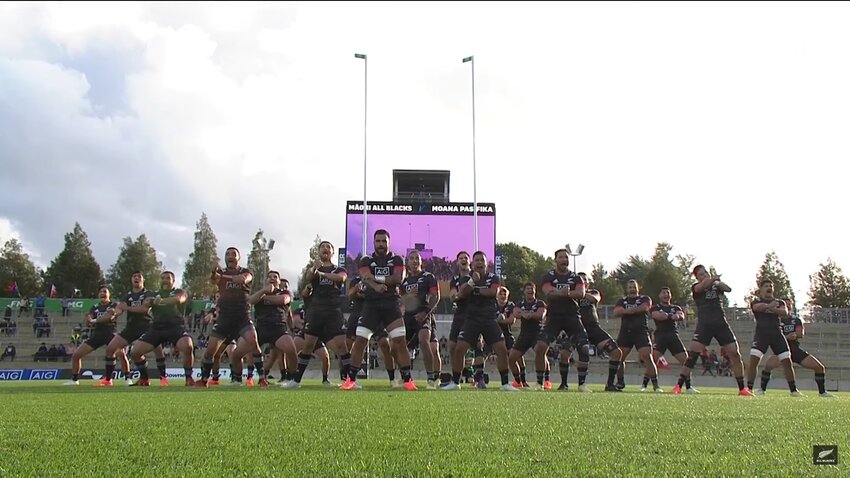
New Zealand Maori and South Africa 1921: “The Worst Match Ever”, the beginning of a racist story
100 years later, we look back on the Springboks’ first tour of Australia and New Zealand, a trip marked by a lot of controversy.

New Zealand Maori and South Africa 1921: “The Worst Match Ever”, the beginning of a racist story
In 2021 there was much talk of a century of rivalry between New Zealand and South Africa, with their first official matches played in 1921, and throughout history it has always been marked by a hard-to-find collision rate between two other teams. To celebrate the story of what happened 100 years ago, there is a book published in New Zealand called “1921 Rugby, Race and Empire” which reconstructs the events. Particularly interesting is the descent of the time machine on September 7, 1921 in Napier, on the North Island of New Zealand. The match between New Zealand Maori and South Africa, whose national team was on tour for the first time in Oceania, was scheduled for that day at McLean Park. A long journey between Australia and New Zealand, a challenge to prepare for the last official Test match with the All Blacks after the first two matches ended with a score of 1-1 (13-5 for South Africa and 9-5 for the All Blacks).
The ‘event’, if it can unfortunately be called, is the main round of the tour, however, not related to those three games but to the game against Maori. Before the match, relations between the two countries were nothing short of excellent, with South Africans invited to many places and enthusiasts to get acquainted with the local reality, visit farms, schools, city halls and even go to a birthday party for 10 years. old girl.
However, the problems started even before the race started. While performing the haka and other dances, it was reported that many South Africans turned their backs, some looked at the ground, and some did not care. Jack Blake, the Maori winger, said, “This scene made us boil. Sam Gemmell, one of my older buddies, told me we were playing for our race.” The race was then a constant brawl, with South Africa’s 9-8 victory marked by misconduct on all sides. Everyone, as well as both teams, even the audience were on several occasions angry at the referee.
It could have almost ended there, but the scandal erupted a few hours into the race. Charles Blackett, a reporter from South Africa after the tour, wrote a telegram to be sent to The Durban Newspaper, a newspaper in Durban. The problem was that that telegram was read by various postal employees who couldn’t believe their eyes. Here is the summary of Blackt’s words: “It was the worst match ever. Only the great pressure on the South African coach made him accept the challenge with the Maori. It was bad to play against a local squad, but the worst came from looking in the stands: white men cheering for a black team to defeat members of of their race. The Springboks were disgusted.”
Napier’s audience was described as unsportsmanlike at all, but the message caused a scandal. Then the attitude of the South African players to the treatment of Māori was highlighted, considering them like black people in their homeland. However, on the part of the South African team, there was a desire to deny everything, saying that this letter did not represent the common feeling of the selection, who thanked the Maori for the hospitality offered.
But the “payload” was put up by New Zealand’s Telegraph newspaper, reporting on a conversation that took place after the match between a South African official (GM Brown) and Ned Barata, the Maori team manager. There was talk of the New Zealand team potentially playing in a future tour of South Africa, but the Springboks manager would have responded by saying it would have been better to avoid having any Maori in South Africa. His thinking revolved around the fact that neither Parata nor any player would find a place in his country.
All very sensitive situations to be dealt with, but also dictated by a fact many later recalled to Springboks, due to their lack of understanding how completely different the New Zealand reality was from their own, a fact in which the whites did not invade the indigenous people who lived instead. Practically the same possibilities.
On the last day of the 1921 Tour, a senior minister spoke at a post-game dinner to players and officials after the third Test in Wellington. (finished sensationally 0-0). Greetings to South Africans, he declared that New Zealand is proud of the “M” people.aUri and that”Maori and Bakiha (descendants of white Europeans) Ione thing in New Zealand.”
To be always up to date with our news, like it Facebook page From OnRugby and/or subscribe to Our Telegram channel. click Who is theAlternatively, if you want to learn more about the rules of rugby
onrugby.it © Reproduction Reserved

“Reader. Travel maven. Student. Passionate tv junkie. Internet ninja. Twitter advocate. Web nerd. Bacon buff.”
